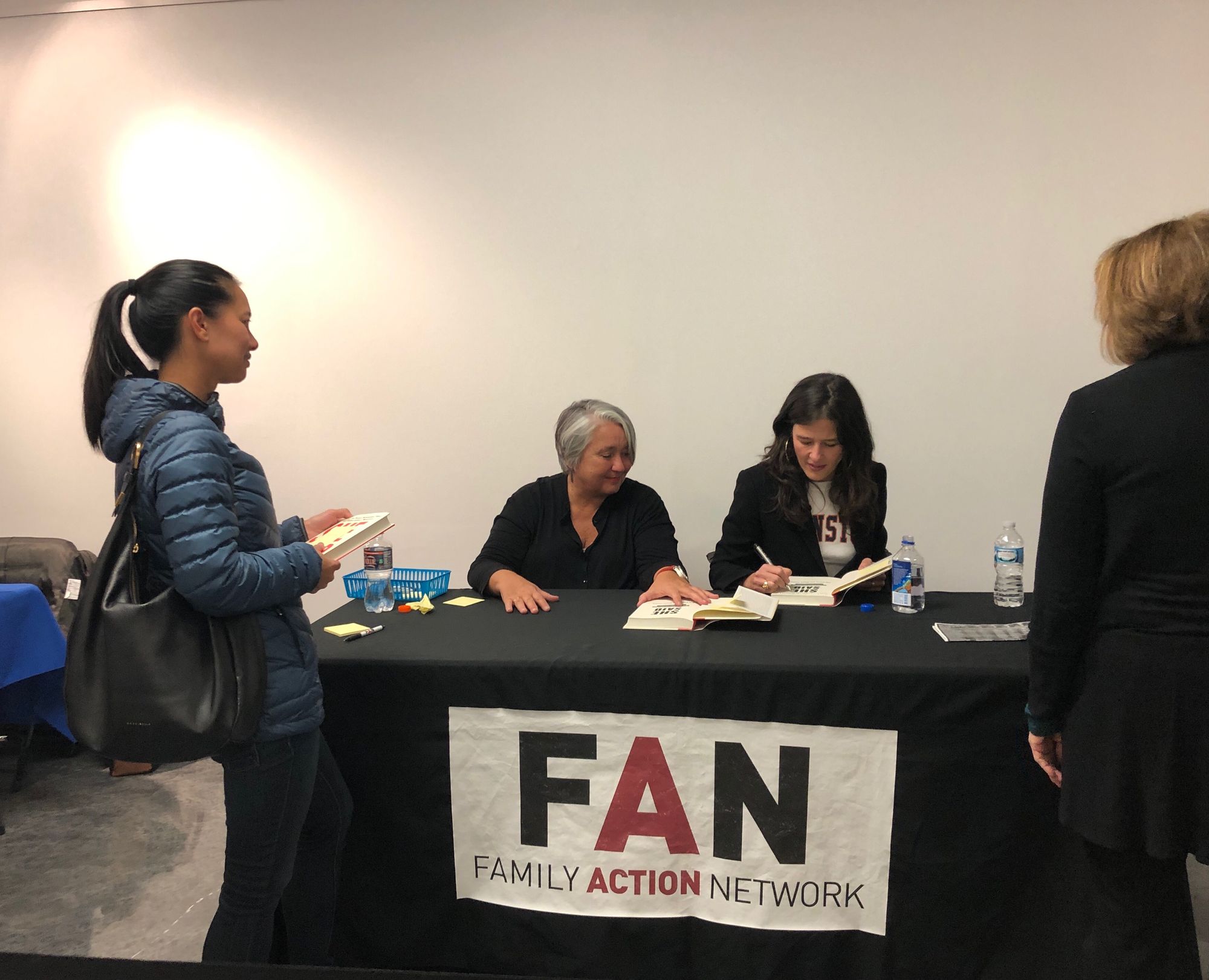When New York Times journalist Megan Twohey returned to her alma mater, Evanston Township High School, Tuesday night, she proudly pulled off her jacket to reveal an ETHS shirt. During her talk, Twohey discussed the book she co-wrote with fellow journalist Jodi Kantor, She Said: Breaking the Sexual Harassment Story That Helped Ignite a Movement.
“My reporting partner and co-author, Jodi, and I have traveled all across the country,” Twohey said. “But I have to say that this event, being back at my high school, being back in this auditorium, feels the most special of anything we’ve down so far.”

Twohey, along with Kantor and Ronan Farrow, received the 2018 Pulitzer Prize for public service for reporting on Harvey Weinstein’s history of sexual harassment and abuse. Though they didn’t expect it at the time, their reporting helped spur the #MeToo movement.
“We could not have foreseen what happened in the following days,” Twohey said. “A lot of the doubt and dismissiveness that had helped shroud all this in secrecy and shadow was lifted, and that was like nothing I've ever seen in my 20 years of reporting.”
At the event, Twohey was interviewed by ETHS senior Sarah Parisien as part of a series of talks hosted by the Family Action Network, or FAN, a group that hosts free events which allow community members to learn about various topics.
“The conversation was great. I think it was really great to see two Evanston High School people up on stage,” said Lonnie Stomitsch, the Executive Director of FAN. “It had a nice vibe — lots of family, lots of alums.”
Their book, which was published in September, begins with another piece of Twohey's reporting, allegations of sexual assault and harassment against President Donald Trump, and then continues to cover the Weinstein story. Finally, the work ends with a look at the Brett Kavanaugh hearings. It also aims to give the reader a behind-the-scenes look at their reporting process, the factors that enabled Weinstein’s abuses to continue, and the aftermath’s effects on the lives of the women who came forward.
“We really wanted to plunge readers into those early moments when nobody would talk to us, to the moments where we were starting to pull the curtain back on these secret settlements that have been used to silence victims of sexual harassment and sexual assault,” Twohey said.
Twohey also described what it was like when Weinstein came into the New York Times office the day before the story was published without warning, an account met with laughter and murmurs from the audience. Twohey took the meeting, where Weinstein and his lawyer presented photographs and evidence in an attempt to shut down the story. This reaffirmed what she learned about his character over months of investigative reporting.
“One of the reasons I wanted to take that meeting in person is that I wanted to show him what we're made of,” Twohey said. “I wanted to have him look us in the eye and see that we were journalists who were confident in our findings … and we weren't going to be intimidated.”
As Twohey and Kantor neared the end of the book’s reporting process, they brought women from each of the three main cases they reported on together in the same room to share their experiences after coming forward.
“It was so surreal to see all these women in the same room,” Twohey said. “It was really incredible to watch these women interact with each other, and it was clear that for every single woman coming forward, it had been completely transformative.”
For audience members, hearing Twohey speak about the reporting she had done on events they had read about was particularly eye-opening.
“To hear her talk about what it was like to take down this powerful force … and how they took this guy down that had been abusing women for decades. It's pretty remarkable to hear her first-hand account of that,” said Evanston resident Rachel Chiss, who, in her words, devoured the book in two days.
Chiss was not alone. The crowd was filled with ETHS alumni and current students who came out to support a fellow wildkit. For Dena Bermann, who graduated from ETHS with Twohey and has since stayed up-to-date with her work, the talk was both empowering and inspiring.
“I think that she was really smart about how she developed the story, and really uncovered the truth about what had been going on for all of these women,” Bermann said. “I just think that's really powerful.”